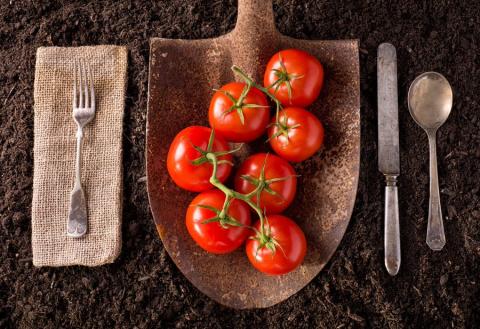European Economic
and Social Committee
World Food Day: EU must turn the Farm to Fork strategy into meaningful and timely actions, EESC warns
The European Economic and Social Committee (EESC) adopted the opinion From Farm to Fork: a sustainable food strategy at its September Plenary session, following the European Commission's communication on the Farm to Fork Strategy - for a fair, healthy and environmentally-friendly food system. As an integral part of the European Green Deal, this is the first EU strategy claiming to encompass the entirety of the food chain.
The EESC has for years been at the forefront of promoting a comprehensive EU food policy, with the aim of providing healthy diets from sustainable food systems, linking agriculture to nutrition and ecosystem services and ensuring supply chains that protect public health for the whole of European society.
In the Committee's view, the proposed Farm to Fork strategy does not reflect these objectives sufficiently.
The lessons learned from COVID-19
The COVID-19 crisis has successfully tested the strength and resilience of Europe's agri-food system, and thus proven the security of food supply in the EU, but it has also shown that getting food from farm to fork cannot be taken for granted
, says the EESC's rapporteur on the issue, Peter Schmidt.
One of the many solutions proposed by the Commission and supported by the EESC, is to invest EUR 10 billion in research and innovation on food, the bioeconomy, natural resources, agriculture, fisheries, aquaculture and the environment, as well as in the use of digital technologies and nature-based solutions to help accelerate the transition.
While the additional EUR 15 billion proposed under the COVID-19 recovery package for rural development and agri-food research is also welcome and necessary, it is no replacement for long-term commitments
, says EESC co-rapporteur, Jarmila Dubravská.
A CAP fit for purpose
A crucial tool for accomplishing the strategy is the Common Agriculture Policy (CAP) budget, as it represents around 40% of total EU expenditure. Therefore, the EESC argues, the CAP budget must not be decreased or even kept at the current level, but should instead be increased in line with those objectives. We have to adjust the CAP to match the strategy, rather than the other way around
, argues Peter Schmidt. Cuts to rural development funding could be detrimental, given that it contains some of the most relevant tools for supporting the transition.
According to the EESC, the strategy also fails to address sustainable land management and access to land. This is a major omission, given that it is one of the main obstacles to renewing the farming population, without which the EU's basis for sustainable and productive farming will be lost. At the same time, the income-support function of CAP payments is vital and will remain so for years to come, even as steps are taken to ensure that food prices reflect the true costs.
Promoting fair food supply chains with fair prices
The EESC stresses that fair food prices (prices that reflect the true cost of production for the environment and society) are the only way to achieve sustainable food systems in the long term. The EU and the Member States should take action to ensure that farmgate prices stay above the costs of production and that healthy diets become easier to achieve. This will require deploying the full range of public governance tools, from tough fiscal measures to information-based approaches, to make the true costs visible.
We need to bring more fairness into the market and we need to make people understand the value of food
, says Peter Schmidt.
Farmgate prices today often do not even cover production costs. The food supply chain is particularly vulnerable to unfair trading practices, due to major imbalances between operators and between producers with long-term commitments and more flexible traders. The EESC has already proposed a number of solutions in its opinions and these must now be put into practice
, adds Jarmila Dubravská.
Improving food system governance – towards a European Food Policy Council
The Farm to Fork Strategy lacks effective governance mechanisms. A wide range of stakeholders across food systems has a role to play in overseeing the development and implementation of the strategy. While improved cooperation between existing bodies should be prioritised, a dedicated multi-stakeholder governance structure will be needed.
The option of a European Food Policy Council, as put forward in previous EESC opinions, should be explored. Food policy councils already exist at local level, bringing together diverse food system stakeholders in a specific area to resolve challenges, reconnecting cities to food production in the surrounding regions and ensuring effective governance of local and regional food policies.
Strengthening the external dimension
Another major concern for EU farmers is that of seeing production standards rise in Europe, while having to compete with imported products that do not comply with sustainability targets. At the same time, cheap imports often mean high social and environmental costs in non-EU countries. Without changes in EU trade policies, the strategy's objectives will not be met. The Committee therefore urges the EU to ensure genuinely reciprocal standards in preferential trade agreements.
Europe and the world have a long way to go to become fully sustainable. One thing is certain, however: the current system is not working. Europe knows the right direction to take and we have the tools and the know-how to get there. Let us also prove that we have the necessary political will and commitment, and show the way to others
, concludes the rapporteur.
